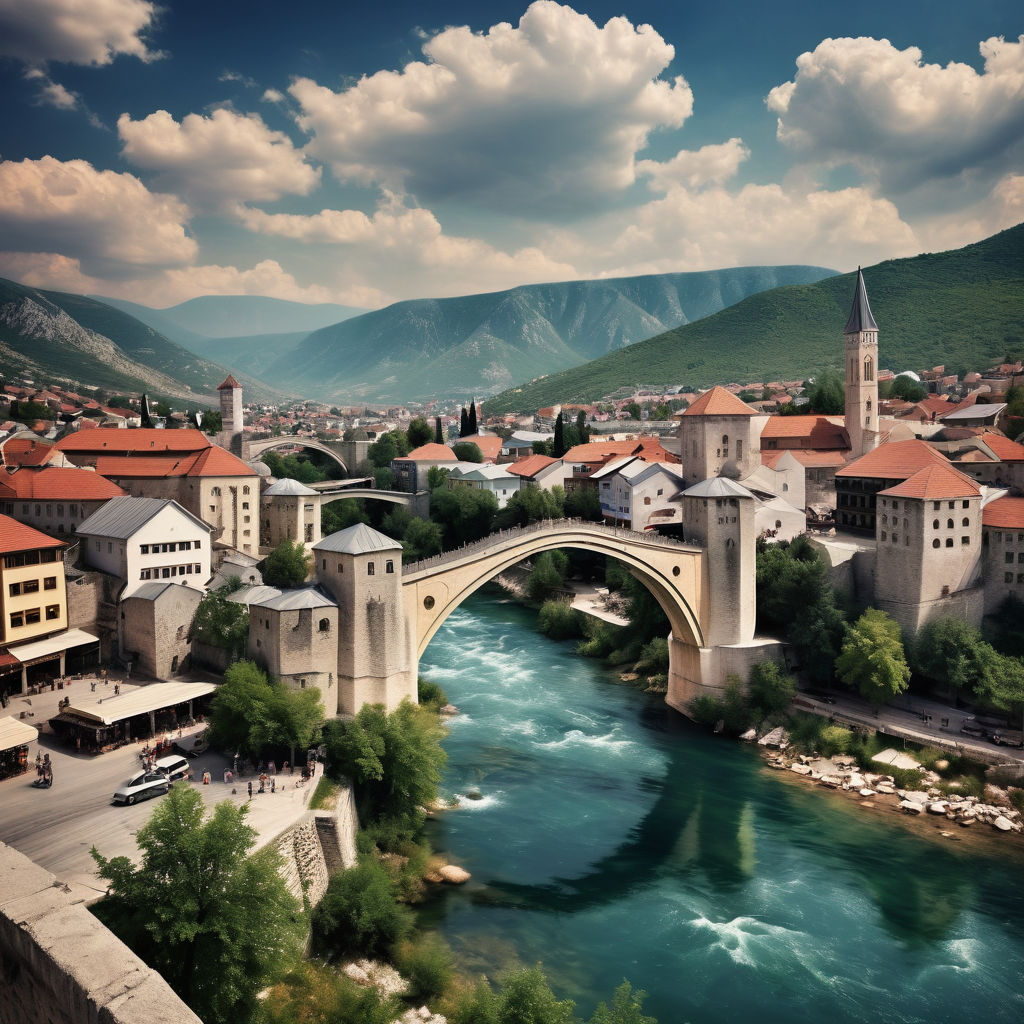Discover Bosnia and Herzegovina: A Tapestry of Cultures and Stunning Landscapes
Exploring the Rich History and Cultural Diversity of Bosnia and Herzegovina

Introduction to Bosnia and Herzegovina
Bosnia and Herzegovina, a country located in Southeastern Europe on the Balkan Peninsula, is known for its complex history, diverse culture, and stunning landscapes. It is bordered by Croatia to the north, west, and south, Serbia to the east, and Montenegro to the southeast. The country comprises two autonomous entities: the Federation of Bosnia and Herzegovina and Republika Srpska, along with the Brčko District. Major cities include Sarajevo, the capital, known for its rich history and cultural diversity; Banja Luka, the administrative center of Republika Srpska; and Mostar, famous for its historic bridge and Ottoman architecture.
Cross-national and Cross-cultural Understanding
Bosnia and Herzegovina's history is marked by a tapestry of cultures and religions, which has significantly shaped its people's perspectives on cross-national and cross-cultural understanding. The country is home to three main ethnic groups: Bosniaks, Croats, and Serbs, each with its own distinct cultural and religious heritage. This diversity fosters a natural inclination towards cultural exchange and understanding. Significant cultural exchanges are facilitated through educational programs and international partnerships. For instance, the Erasmus+ program allows Bosnian students to study abroad, promoting cross-cultural understanding. Additionally, institutions like the University of Sarajevo engage in numerous international collaborations, further enhancing intercultural awareness. Cultural festivals such as the Sarajevo Film Festival and the Mostar Bridge Diving competition attract participants from around the world, creating platforms for cultural exchange and mutual appreciation. These events not only showcase Bosnia and Herzegovina's rich cultural heritage but also encourage dialogue and understanding among different cultures.
Interactions and Social Dynamics
Interactions between Bosnians and foreigners are generally characterized by warmth and hospitality. Bosnians are known for their friendliness and willingness to help, often going out of their way to make visitors feel welcome. Social behaviors in Bosnia and Herzegovina are influenced by a strong sense of community and family values. Communication styles in Bosnia and Herzegovina can be direct yet polite. Bosnians value honesty and straightforwardness in conversations, and it is common for discussions to be lively and animated. When interacting with foreigners, Bosnians are generally accommodating and eager to share their culture and traditions. Multilingualism plays a crucial role in facilitating interactions. While Bosnian, Croatian, and Serbian are the official languages, many people, especially the younger generation, speak English, making communication with foreigners easier. The presence of various ethnic groups also means that many Bosnians are comfortable switching between languages, further enhancing cross-cultural interactions.
Views on Dating and Relationships
Dating and relationships in Bosnia and Herzegovina are influenced by cultural traditions and modern practices. While traditional values still hold significant sway, especially in rural areas, urban centers tend to have more liberal views on dating and relationships. It is not uncommon for Bosnians to date foreigners, and such relationships are generally accepted, though they may sometimes face scrutiny from older generations. Family approval is important in Bosnian culture, and introducing a partner to one's family is a significant step. Dating practices can vary, with some couples adhering to traditional customs, while others embrace modern dating norms. Public displays of affection are generally acceptable, particularly among younger people in urban areas.
Marriage and Family
Marrying foreigners in Bosnia and Herzegovina is legally recognized and culturally accepted, though it comes with certain considerations. Legally, mixed marriages require adherence to local regulations and obtaining the necessary documentation. Socially, acceptance of such marriages depends on the families involved and their openness to different cultures. Bosnian weddings are elaborate affairs that blend traditional and modern elements. They often involve multiple ceremonies and celebrations, reflecting the country's diverse cultural heritage. Family plays a central role in Bosnian society, and the involvement of family members in marriage decisions is common. Cross-cultural marriages can bring together different traditions and practices, creating unique and harmonious family environments.